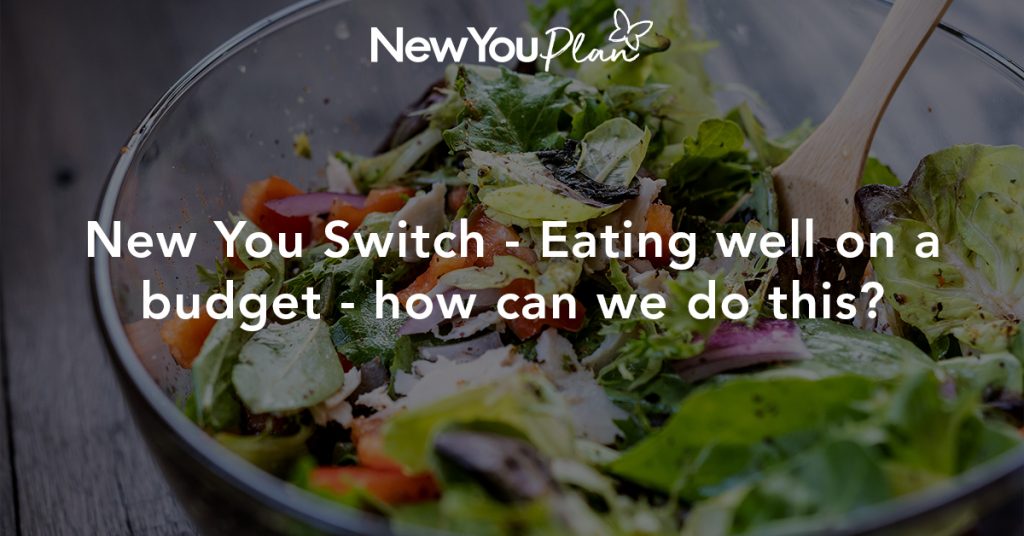BLOGS FOR MOVING

How Can We Eat Well On A Budget?
We are increasingly led to believe that healthy food is more expensive than unhealthy food and that it is hard to eat well on a budget. Due to the rise in mass-produced cheap processed foods, expensive organic food and so called superfoods, foods that are deemed healthy can often be more expensive compared with unhealthy options which include higher levels of fat, sugar and salt (1). The abundance of these less expensive foods which are often low in nutrients but high in calories can predispose to weight gain.
The good news is that with a little bit of planning and skill, we can find ways to eat a healthy and balanced diet while sticking to a budget. This is particularly important if you are looking to lose weight or if you are thinking about sustainable ways to make changes to your lifestyle to maintain a healthy diet following a period of weight loss.
Tips for eating well on a budget
Meal planning is a great place to start
Meal planning, for a few days at a time or even a whole week, can help stop us from buying unnecessary food and to prevent waste. It can also help you to avoid additional snacking and calorie intake outside of your plan. Planning what meals and snacks you will have and writing a shopping list will ensure that you don’t buy non-essential items. This can also avoid the temptation for a takeaway!
Planning to take healthy snacks with you when you go out can reduce the likelihood of buying expensive foods outside of the home – helping with both weight control and budgeting!
Batch cooking
Making a batch of food and portioning it out in advance can help you to exercise portion control, making it less likely that you will overindulge or eat too much in one go. As well as being a very important aspect of weight management this can help the food you buy go further and last for longer. You can freeze or refrigerate pre-made portions for another time. If you make too much for a meal, refrigerating or freezing the leftovers can help you to save money and avoid waste.
Swap expensive brands for cheaper basic brands
Basic brands don’t mean unhealthy, there is often not much nutritional difference between branded and unbranded food, it is often more about the fancy label and packaging. For example, you could swap premium pasta for an own-brand variety. The traffic light system or the nutrition information table on the label can help you compare nutritional content when making the swap from your usual brand of food to a cheaper one. You might even find a healthier option!
Reduce your meat intake
Good quality and lean meat can be quite expensive. Swapping meat in your favourite dishes for pulses such as lentils, beans and peas can help you to reduce your intake of saturated fat as well as reduce your spending. Pulses are very cheap, but are also very nutritious, containing protein, fibre and an array of vitamins and minerals. The combination of protein and fibre can help us to feel fuller for longer – which can help with weight management.
It’s Okay to buy frozen
Don’t be afraid of visiting the freezer aisle when shopping. Opting for frozen fruits and vegetables can be cheaper than fresh alternatives and can help to reduce food waste, meaning your food will last longer as you don’t need to worry about them going off. Having these in the freezer can be an easy, cheap and just as nutritious way of adding more vegetables to your diet. Vegetables are low in calories and so can be consumed in relatively large quantities helping us to feel full and manage our weight.
Stay clear of BOGOF on non-essential foods
While ‘buy one get one free’ and other offers can seem like a good deal, they may not be, especially when it comes to our health. Buying one and “getting one free” can encourage overeating of foods which are often high in calories, saturated fats and sugars as well as encourage spending on items you wouldn’t have bought had they not been on offer. The good news is that from April 2022 these sorts of offers on unhealthy foods will be restricted, under new plans for the UK government to tackle obesity.
If you are embarking upon a weight loss journey, having a long-term plan of how you are going to maintain your weight loss in a sustainable way that works for your budget is an important step to take. Avoiding purchases of non-essential items can help to reduce spending as well as reduce consumption of foods which may hinder your weight management progress. Additionally, take some time to plan your meals; and look for healthy recipes that are cost-effective, which can be cheaper and healthier than buying a takeaway or pre-prepared processed foods.
Luke Marshall
0
Tags :





